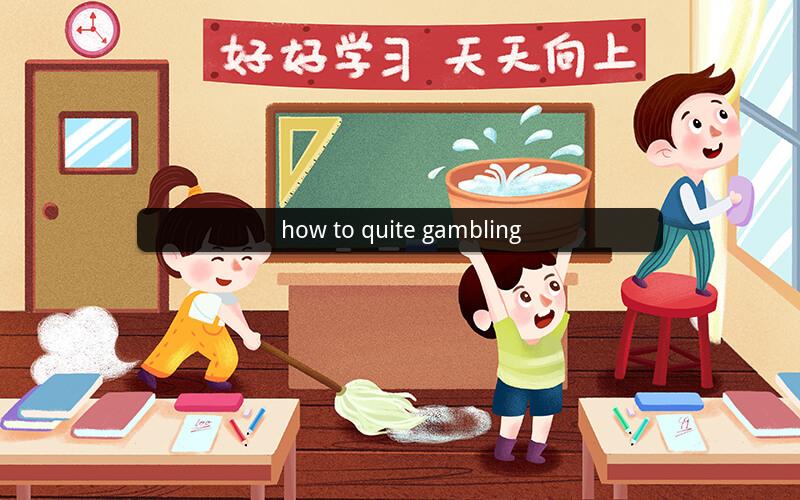
How to Quit Gambling: A Comprehensive Guide
Table of Contents
1. Understanding the Importance of Quitting
2. Identifying the Reasons to Stop
3. Recognizing the Signs of Problem Gambling
4. Seeking Professional Help
5. Developing a Support System
6. Creating a Personalized Quitting Plan
7. Managing Triggers and Cravings
8. Building a Healthy Lifestyle
9. Celebrating Small Wins
10. Staying Committed to Change
1. Understanding the Importance of Quitting
Gambling can be an enjoyable pastime for many, but for others, it can spiral into a harmful addiction. Recognizing the importance of quitting is the first step towards a healthier life. The consequences of problem gambling can extend beyond financial loss, affecting relationships, work, and mental health.
2. Identifying the Reasons to Stop
Understanding why you want to quit can provide motivation and clarity throughout the process. Reasons may include financial strain, the desire to protect loved ones, or the wish to regain control over your life. Reflecting on these reasons can help reinforce your commitment to change.
3. Recognizing the Signs of Problem Gambling
Problem gambling can manifest in various ways. Look out for signs such as secretive behavior, increased debt, missing work or school, and neglecting responsibilities. Recognizing these signs is crucial for taking the first steps towards recovery.
4. Seeking Professional Help
Professional help can provide the necessary tools and support for overcoming gambling addiction. Therapists, counselors, and support groups can offer personalized strategies and coping mechanisms.
5. Developing a Support System
A strong support system can make a significant difference in your journey to quitting gambling. Reach out to friends, family, or support groups to build a network of people who understand and encourage your efforts.
6. Creating a Personalized Quitting Plan
A personalized plan should include specific goals, timelines, and strategies for overcoming gambling addiction. Tailoring the plan to your individual needs can increase the likelihood of success.
7. Managing Triggers and Cravings
Identifying and managing triggers and cravings is essential for maintaining sobriety. Techniques such as mindfulness, distraction, and substitution can help alleviate the urge to gamble.
8. Building a Healthy Lifestyle
A healthy lifestyle can contribute to your overall well-being and reduce the temptation to gamble. Incorporate regular exercise, a balanced diet, and sufficient sleep into your daily routine.
9. Celebrating Small Wins
Recognize and celebrate the small victories along the way. Whether it's a day without gambling or a month of sobriety, acknowledging these achievements can provide motivation and a sense of progress.
10. Staying Committed to Change
Staying committed to change is crucial for long-term success. Remind yourself of the reasons why you want to quit and stay focused on your goals.
Additional Tips for Quitting Gambling
- Remove temptation: Delete gambling apps, unsubscribe from promotional emails, and avoid places that trigger your urge to gamble.
- Set financial boundaries: Establish a budget and stick to it to prevent overspending.
- Use self-help tools: Utilize apps and resources designed to help individuals quit gambling.
- Practice self-compassion: Understand that relapse is a part of the process and be kind to yourself during setbacks.
- Stay informed: Keep up-to-date with research and resources related to gambling addiction to stay motivated and informed.
Frequently Asked Questions
1. What is the first step in quitting gambling?
- The first step is to recognize the need to quit and understand the reasons behind your decision.
2. How can I find a therapist or counselor to help with my gambling addiction?
- Search online directories, ask for referrals from support groups, or contact local mental health organizations.
3. What support groups are available for individuals struggling with gambling addiction?
- Organizations such as Gamblers Anonymous and Gamblers Help offer support groups and resources for those affected by gambling addiction.
4. How can I avoid triggers and cravings when trying to quit gambling?
- Identify your triggers and develop strategies to cope with them, such as engaging in a different activity or seeking support from friends or family.
5. Is it possible to quit gambling on my own?
- While it is possible to quit on your own, seeking professional help and joining a support group can significantly increase your chances of success.
6. What should I do if I relapse while trying to quit gambling?
- Relapse is a common part of the recovery process. Reflect on what led to the relapse, seek support, and return to your quitting plan with a renewed commitment.
7. How long does it take to overcome a gambling addiction?
- The duration of recovery varies for each individual, but many people experience improvements within a few months to a year.
8. Can my family and friends help me quit gambling?
- Yes, family and friends can provide support, encouragement, and hold you accountable during your journey to recovery.
9. What are some alternative activities to replace gambling in my free time?
- Consider hobbies, exercise, volunteering, or social activities that can provide enjoyment and fulfillment without the risk of addiction.
10. How can I maintain my commitment to change after quitting gambling?
- Regularly remind yourself of the reasons why you want to quit, celebrate small wins, and seek support from your network to stay motivated and committed.